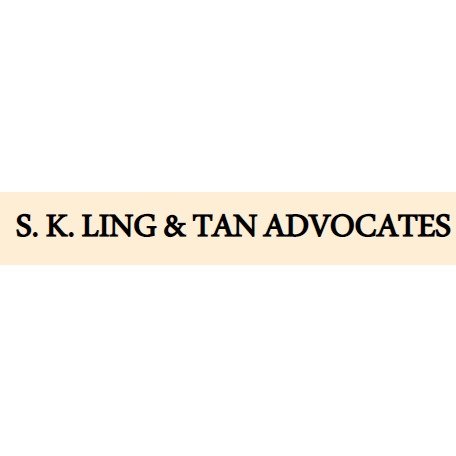Best Debt Capital Markets Lawyers in Kuching
Share your needs with us, get contacted by law firms.
Free. Takes 2 min.
List of the best lawyers in Kuching, Malaysia
About Debt Capital Markets Law in Kuching, Malaysia
Debt Capital Markets (DCM) involve the issuance, trading, and structuring of debt instruments such as bonds, notes, and sukuk (Islamic bonds). In Kuching, the capital of Sarawak, Malaysia, DCM plays a vital role in facilitating fundraising for both corporations and public entities. Malaysia is recognized for its robust debt market, particularly its leadership in Islamic finance, making Kuching an emerging location for both conventional and Shariah-compliant debt transactions. Laws and regulations governing DCM in Kuching focus on transparency, investor protection, and adherence to national and Islamic financial standards.
Why You May Need a Lawyer
Navigating the complexities of the Debt Capital Markets requires in-depth legal knowledge and experience. People and entities often encounter situations where legal assistance becomes crucial, such as:
- Structuring and issuing corporate bonds, sukuk, or debentures
- Ensuring compliance with Malaysian securities regulations and Shariah principles
- Reviewing and negotiating transaction documents
- Managing disclosure obligations to regulators and investors
- Dealing with debt restructuring or refinancing in cases of distress
- Resolving disputes arising from debt securities transactions
- Understanding tax implications of raising capital through debt instruments
- Advising on cross-border offerings and compliance for foreign investments
A lawyer can guide you through regulatory requirements, draft and review complex agreements, and help ensure successful outcomes, whether you are an issuer, investor, or financial institution.
Local Laws Overview
Debt Capital Markets activities in Kuching are regulated primarily at the national level, but local implementation and practical considerations in Sarawak are also important to understand. Key elements of the legal framework include:
- Capital Markets and Services Act 2007 (CMSA) - The CMSA is the cornerstone legislation regulating fundraising activities, offering of securities (including debt instruments), and market conduct in Malaysia.
- Securities Commission Malaysia (SC) - The SC oversees licensing, approval of issuance, continuing obligations, and enforcement related to debt securities.
- Bursa Malaysia - This is the national stock exchange where corporate bonds and sukuk may be listed, requiring compliance with its listing rules.
- Islamic Finance Regulations - For sukuk, compliance with Shariah law is mandatory, and approval from appropriate Shariah advisory councils is required.
- State-Specific Considerations - Although capital markets are federally regulated, local business procedures and land laws may affect collateralization and operational aspects in Sarawak.
- Tax Regulations - Tax treatment for interest payments and profit distributions are subject to Malaysian tax laws, with some incentives available for certain instruments.
Understanding both the federal regulatory environment and local Sarawak context is essential for successful navigation of DCM in Kuching.
Frequently Asked Questions
What are Debt Capital Markets?
Debt Capital Markets refer to the financial market where entities raise funds by issuing debt securities such as bonds, notes, and sukuk to investors. These instruments represent a loan made by investors to issuers, who agree to pay back the principal with interest or profit.
What is the difference between bonds and sukuk?
Bonds are conventional debt instruments where issuers promise to pay interest, while sukuk are Islamic-compliant certificates structured to avoid interest and comply with Shariah law. Sukuk represent ownership in an underlying asset, project, or investment.
Who can issue debt securities in Kuching?
Corporations, government agencies, and public sector entities can issue bonds and sukuk in Kuching, subject to approval and compliance with Securities Commission Malaysia regulations.
Do I need approvals from local authorities in Sarawak for issuance?
While most approvals for issuance are handled at the federal level through the Securities Commission Malaysia, local licensing or compliance issues, especially related to collateral or land use, may require attention from Sarawak state authorities.
What are the main regulatory bodies involved?
The primary regulatory bodies are the Securities Commission Malaysia, Bank Negara Malaysia for certain financial institutions, and Bursa Malaysia if listing is required. For Islamic instruments, relevant Shariah advisory boards are also involved.
How are investors protected in the Debt Capital Markets?
Investor protections include mandatory disclosure requirements, ongoing issuer obligations, regulatory oversight by the Securities Commission, and specific rules for resolving disputes or defaults.
Is it possible for a foreign company to issue debt securities in Kuching?
Yes, foreign companies can issue debt instruments in Malaysia, but they must comply with local laws, obtain necessary approvals, and appoint local representatives or trustees as required.
What documents are typically required in a DCM transaction?
Common documents include the offering circular or prospectus, trust deed, subscription agreement, legal opinions, and, for sukuk, Shariah-compliance certificates.
What are the tax implications of investing in or issuing debt securities?
Interest or profit income on debt securities may be subject to withholding tax, depending on the residency status of investors and applicable double tax treaties. Some tax incentives may be available for certain types of issuances.
How do I get legal assistance for a DCM transaction in Kuching?
You should consult a law firm with experience in capital markets and, if relevant, Islamic finance in Malaysia. A local lawyer will guide you through compliance, documentation, and negotiations.
Additional Resources
For more information and assistance regarding Debt Capital Markets in Kuching, the following resources can be valuable:
- Securities Commission Malaysia - The main regulatory authority for securities market activities, including debt securities issuance and market conduct.
- Bank Negara Malaysia - The central bank, particularly relevant for financial institutions and matters related to monetary policy.
- Bursa Malaysia - Provides frameworks and guidance for the listing of debt securities.
- Malaysian Investment Development Authority (MIDA) - For information on investment incentives and procedures, particularly for foreign issuers or investors.
- Islamic Financial Services Board - Useful for understanding Shariah standards for sukuk and Islamic debt instruments.
- State Government of Sarawak - Relevant for business permit and regulatory compliance at the state level.
- Malaysia Bar Council - For finding qualified legal practitioners specializing in capital markets.
Next Steps
If you are considering engaging in a Debt Capital Markets transaction or have related legal concerns in Kuching, follow these steps:
- Assess your objectives and identify the type of debt instrument suitable for your needs.
- Gather initial business or corporate documents and financial details.
- Consult a qualified local lawyer with experience in DCM, preferably with expertise in both conventional and Islamic finance if relevant.
- Prepare for compliance checks, due diligence, and regulatory submissions.
- Engage with regulatory authorities early to understand approval and disclosure requirements.
- Work with your legal adviser throughout documentation, issuance, and post-issuance compliance stages.
Timely legal advice is crucial for successful navigation of Debt Capital Markets transactions in Kuching. Starting with the right legal support can help prevent costly errors and ensure regulatory compliance.
Lawzana helps you find the best lawyers and law firms in Kuching through a curated and pre-screened list of qualified legal professionals. Our platform offers rankings and detailed profiles of attorneys and law firms, allowing you to compare based on practice areas, including Debt Capital Markets, experience, and client feedback.
Each profile includes a description of the firm's areas of practice, client reviews, team members and partners, year of establishment, spoken languages, office locations, contact information, social media presence, and any published articles or resources. Most firms on our platform speak English and are experienced in both local and international legal matters.
Get a quote from top-rated law firms in Kuching, Malaysia — quickly, securely, and without unnecessary hassle.
Disclaimer:
The information provided on this page is for general informational purposes only and does not constitute legal advice. While we strive to ensure the accuracy and relevance of the content, legal information may change over time, and interpretations of the law can vary. You should always consult with a qualified legal professional for advice specific to your situation.
We disclaim all liability for actions taken or not taken based on the content of this page. If you believe any information is incorrect or outdated, please contact us, and we will review and update it where appropriate.












